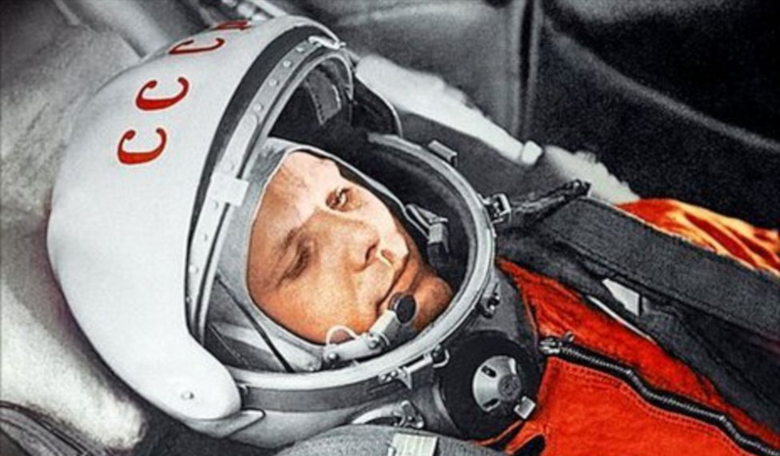Sixty years ago today cosmonaut Yuri Gagarin became the first person in space, a flight that marked a new chapter in the history of space exploration.
A trained steel worker turned military pilot, Gagarin was selected from thousands of candidates to undergo the rigorous training required for a space flight.
His historic mission, which took off from the Tyuratam test range in Kazakhstan (now the Baikonur Cosmodrome), lasted just 108 minutes – the time it took to complete one loop around the Earth, before returning to Russian soil.
Renowned for reportedly saying "Poyekhali", or "here we go" just before liftoff, the flight was not without problems however. His craft endured a number of last-minute technical glitches which nearly put a halt to proceedings and once in the air, the Vostok spacecraft entered into orbit at a higher altitude than expected.
Gagarin also came down miles away from his expected landing point, having ejected from his capsule over the Saratov region in southern Russia.
But Gagarin had returned a hero and his achievement enshrined his place in Russian history as one of the most admired figures in the country - an honour he still retains today.
"This is probably the only surname that everyone knows, from four-year-old children to people over 80," the Moscow's Museum of Cosmonautics deputy director of research, Vyacheslav Klimentov said in an interview with AFP.
"I would say that Gagarin's feat, that saw a man go to space for the first time, bonds all Russians together," he added.
Gagarin died in March 1968 aged just 34 years old during a routine training flight with fellow pilot Vladimir Seryogin, when the duo crashed their MiG-15 jet fighter near Novosyolovo in the Soviet Union.
A full report of the investigation into the cause of the accident was never released by authorities, prompting a myriad of rumours which persisted for years.
Some of the most popular theories surrounding Gagarin's death included being drunk in the cockpit, assassinated by the Kremlin and being kidnapped by aliens.
Recently though, partially declassified documents report of an incident involving an unauthorised Su-15 fighter jet that flew dangerously close to Gagarin’s MiG-15.
The encounter is thought to have sent the MiG-15 into a tailspin that reached speeds of 750 kilometres per hour (470 miles per hour), resulting in a fatal crash for both pilots.
At the time, news of his death sent shockwaves throughout the country and for the first time in Soviet history, a day of national mourning was declared for someone who was not a head of state.
Long gone but certainly not forgotten, the anniversary of Gagarin's historic flight is celebrated every year in Russia as Cosmonautics Day where residents of all ages lay flowers at monuments across the country to celebrate his accomplishment.
This year, Russian President Vladimir Putin will mark this special occasion by travelling to Engels, a city in the south of the country on the banks of the Volga river, to the site of the cosmonaut's landing where a memorial stands to honour the historic flight.
The anniversary of the spaceflight is a "day of national pride" for Russia, Putin's spokesman Dmitry Peskov told reporters on Friday.
Gagarin’s now rusty Vostok capsule is on display at Moscow's Museum of Cosmonautics where an exhibition dedicated to the globally acclaimed cosmonaut is set to open this week.











